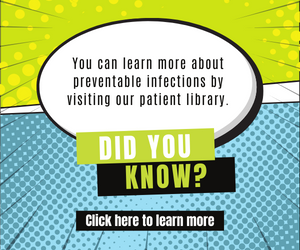Pre-teens - Prepare for adolescence and beyond

It can be a jungle out there for teenagers, or at least it may seem that way to parents as they witness their kids hurtling through childhood. Knowing that your child is immunized against human papillomavirus (HPV), the most common sexually transmitted infection in Canada, leaves one less worry for you as s/he approaches the teen years.
Here are the facts about HPV:
HPV update: Vaccination advised for males and females
In January 2012, National Advisory Committee on Immunization (NACI) updated recommendations for prevention of HPV infection2a to advise vaccination of males as well as females between 9 and 26 years of age. As with females, early inoculation prior to onset of sexual activity is suggested to maximize immune protection.2b Two HPV vaccines, Gardasil® and Cervarix™, are currently authorized for use in Canada. Both vaccines provide protection against HPV-16 and HPV-18, which cause ~70% of all cervical cancers. Gardasil® also protects against HPV-6 and HPV-11, which cause ~90% of all anogenital warts in males and females. Gardasil® is approved for use in both females and males aged 9 to 26, and in 2011 was approved for use in women up to the age of 45 years. Cervarix™ is approved for use in females aged 10 to 25.2c
Over 65 years of age?
Shingles (Herpes Zoster): An old-fashioned condition with a new approach to prevention.
Chickenpox – gone but not forgotten... especially when it comes back unexpectedly. The varicella-zoster virus (VZV) that causes chicken pox can remain dormant for many years, only to reappear later in some people in the form of a painful blistering rash known as shingles (herpes zoster).3a While the rash resolves with time, it may leave some of those affected with post-herpetic neuralgia (PHN), a chronic condition associated with persistent and often debilitating pain.3b Who needs that? Protect yourself. The new shingles vaccine, tested in more than 38,500 individuals age 60 years or older,4a cut the risk of developing herpes zoster by half. It also reduced the occurrence of post-herpetic neuralgia by two-thirds.4b That’s old-fashioned food for thought.
Pneumococcal disease: Seniors and young children most vulnerable
Streptococcus pneumoniae (pneumococcus) is common and highly contagious with close contact.5a It is the leading cause of invasive pneumococcal disease such as pneumonia, bacteremia, and meningitis.6a Young children and older adults are most likely to be affected.6b Many (non-institutionalized) adults over the age of 65 – almost 60% of those responding to a 2001 Quebec telephone survey – have never been immunized against pneumococcal disease.6c Older adults appear to be at greatest risk for serious outcomes related to exposure. There is a mortality rate of 28% in adults 65 years of age and older with invasive pneumococcal disease (compared with 2- 4% mortality rates in young children, who are considered similarly high-risk).6d NACI recommends a one-time dose of pneumococcal vaccine for Canadians over the age of 65. (7a) Help stop the spread. If not for yourself, do it for grandchildren everywhere.
Brought to you by vaccines411.ca – know where to go for your vaccinations.
This information should not be used as a substitute for the medical care and advice of your doctor. There may be variations in treatment that your physician may recommend based on individual facts and circumstances.
Read more Vaccines411® Articles 
Sources
Note: the hyperlinks that direct to other sites are not continuously updated. It is possible that some links become untraceable over time. Thank you.
- HPV vaccine (Human papillomavirus): What teens need to know. CPS Infectious Diseases and Immunization Committee. Updated: September 2010
https://www.caringforkids.cps.ca/handouts/hpv_vaccine_teens - Human Papillomavirus (HPV) Prevention and HPV Vaccines: Questions and Answers - Public Health Agency of Canada
http://www.phac-aspc.gc.ca/std-mts/hpv-vph/hpv-vph-vaccine-eng.php - Brochure: Protect yourself against shingles. Canadian Coalition for Immunization Awareness & Promotion (CCIAP).
- Oxman MN et al. A Vaccine to Prevent Herpes Zoster and Postherpetic Neuralgia in Older Adults. N Engl J Med 2005; 352:2271-2284
- What you need to know about pneumococcal disease - Immunize Your Child - Public Health Agency of Canada
http://www.phac-aspc.gc.ca/im/iyc-vve/faq-dis-mal/pneumo-eng.php - Johnston BL, Conly JM. Routine adult immunization in Canada: Recommendations and performance. Can J Infect Dis. 2002 Jul-Aug; 13(4): 226–231.
http://www.ncbi.nlm.nih.gov/pmc/articles/PMC2094878/ - Immunization Schedules: Recommendations from the National Advisory Committee on Immunization (NACI). Public Health Agency of Canada.
http://www.phac-aspc.gc.ca/im/is-cv/index-eng.php



